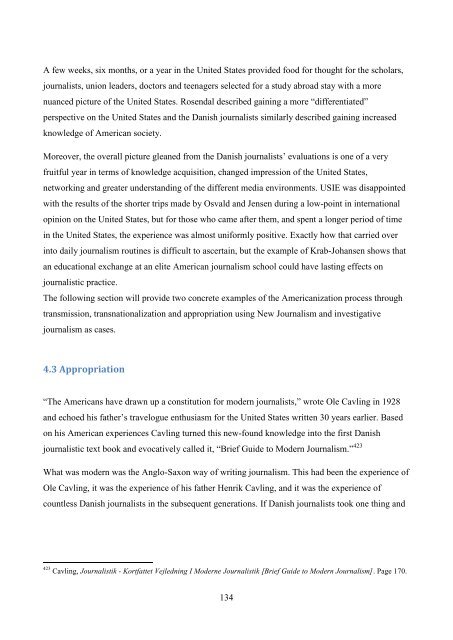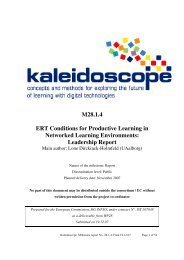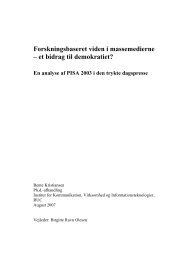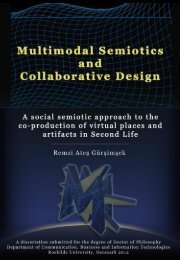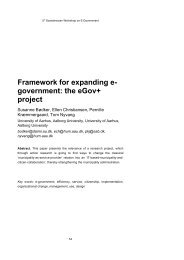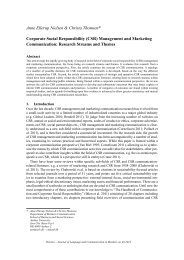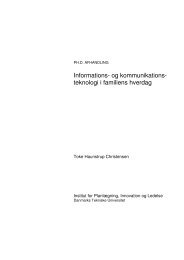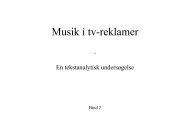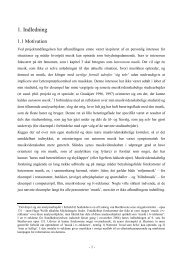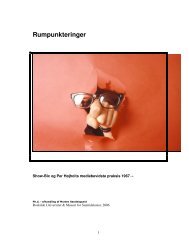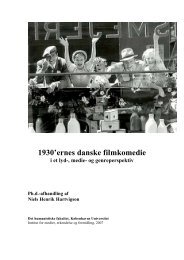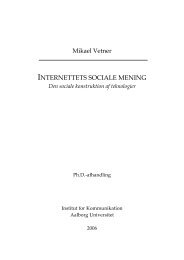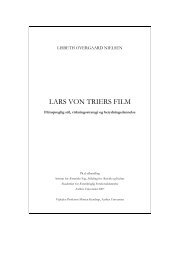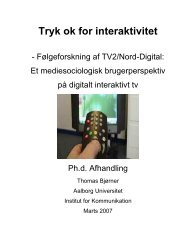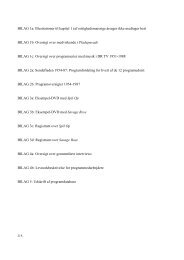The Jeremiad Over Journalism
The Jeremiad Over Journalism
The Jeremiad Over Journalism
Create successful ePaper yourself
Turn your PDF publications into a flip-book with our unique Google optimized e-Paper software.
A few weeks, six months, or a year in the United States provided food for thought for the scholars,<br />
journalists, union leaders, doctors and teenagers selected for a study abroad stay with a more<br />
nuanced picture of the United States. Rosendal described gaining a more ―differentiated‖<br />
perspective on the United States and the Danish journalists similarly described gaining increased<br />
knowledge of American society.<br />
Moreover, the overall picture gleaned from the Danish journalists‘ evaluations is one of a very<br />
fruitful year in terms of knowledge acquisition, changed impression of the United States,<br />
networking and greater understanding of the different media environments. USIE was disappointed<br />
with the results of the shorter trips made by Osvald and Jensen during a low-point in international<br />
opinion on the United States, but for those who came after them, and spent a longer period of time<br />
in the United States, the experience was almost uniformly positive. Exactly how that carried over<br />
into daily journalism routines is difficult to ascertain, but the example of Krab-Johansen shows that<br />
an educational exchange at an elite American journalism school could have lasting effects on<br />
journalistic practice.<br />
<strong>The</strong> following section will provide two concrete examples of the Americanization process through<br />
transmission, transnationalization and appropriation using New <strong>Journalism</strong> and investigative<br />
journalism as cases.<br />
4.3 Appropriation<br />
―<strong>The</strong> Americans have drawn up a constitution for modern journalists,‖ wrote Ole Cavling in 1928<br />
and echoed his father‘s travelogue enthusiasm for the United States written 30 years earlier. Based<br />
on his American experiences Cavling turned this new-found knowledge into the first Danish<br />
journalistic text book and evocatively called it, ―Brief Guide to Modern <strong>Journalism</strong>.‖ 423<br />
What was modern was the Anglo-Saxon way of writing journalism. This had been the experience of<br />
Ole Cavling, it was the experience of his father Henrik Cavling, and it was the experience of<br />
countless Danish journalists in the subsequent generations. If Danish journalists took one thing and<br />
423 Cavling, Journalistik - Kortfattet Vejledning I Moderne Journalistik [Brief Guide to Modern <strong>Journalism</strong>]. Page 170.<br />
134


